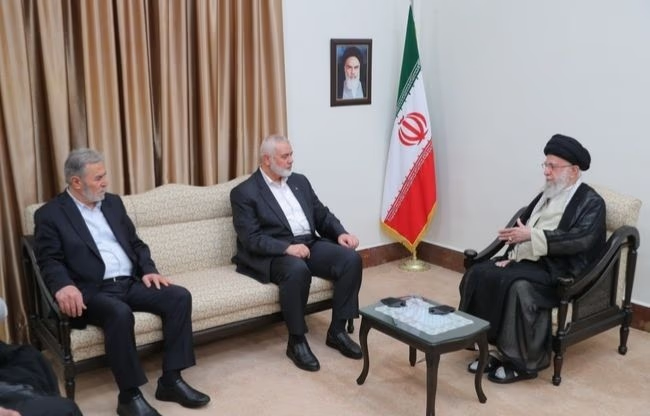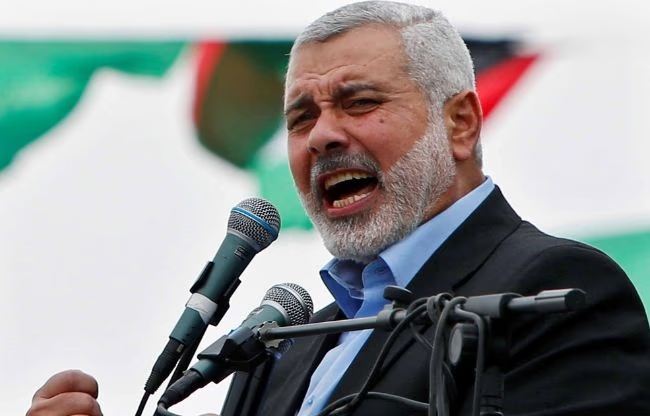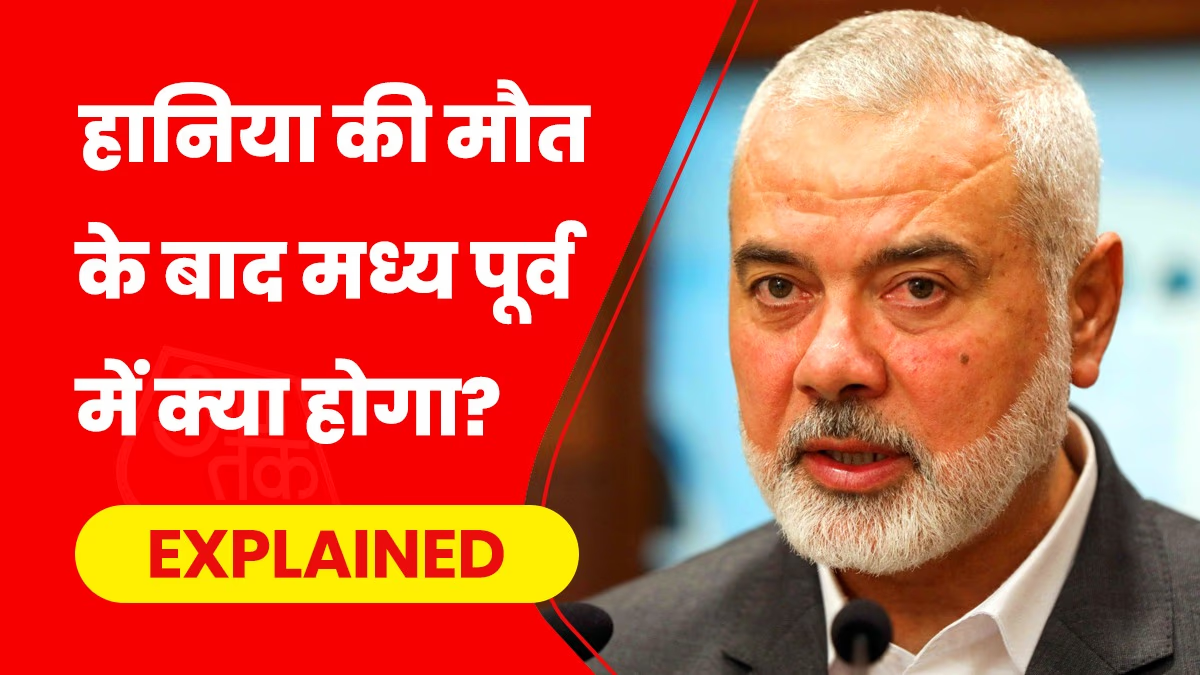Ismail Haniyeh, a senior Hamas leader, was killed in Tehran, the capital of Iran. Haniyeh headed the political wing of Hamas. Hamas has confirmed Haniyeh's death.
Ismail Haniyeh attended the inauguration ceremony of Iran's new President Massoud Pajeshkian on Tuesday and also met Iran's Supreme Leader Ayatollah Ali Khamenei.
On Wednesday morning, Hamas stated Haniyeh's residence in Tehran was bombed, leading to his death. Hamas blames Israel for this attack. Hamas leader Musa Abu Marzouk described Haniyeh's death as a cowardly act and said it will not go in vain.
So far, there has been no official statement from Israel. However, Israeli Minister Amichai Netanyahu commented that Haniyeh's death makes the world a bit better, remarking, 'This is the right way to clean up the world. No compromises. No mercy.'
Ismail Haniyeh had been residing in Doha, Qatar’s capital since 2019. He traveled to Tehran to attend the inauguration ceremony of Iran's new president.
The Islamic Revolutionary Guard Corps (IRGC) confirmed Haniyeh's death in a statement, reporting that an attack on Haniyeh's residence early morning killed him and one of his bodyguards.
The specific details of the attack, including the timing and method, are still unclear. The IRGC mentioned an ongoing investigation. Meanwhile, Iranian news agencies suggested the attack occurred around 2:30 AM.
Israel has refrained from commenting officially. Reportedly, Israeli Prime Minister Benjamin Netanyahu instructed his ministers to avoid making statements on this issue.

Source: aajtak
Israel and Iran have long been engaged in a 'shadow war', frequently attacking each other without claiming responsibility. However, the conflict with Hamas has turned Iran into a central battleground.
The Israel-Hamas conflict worsened Israeli-Iranian relations. Iran denies prior knowledge of the Hamas attack on October 7, while Israel accuses Iran of supporting Hamas.
Besides Hamas, Iran supports Lebanon's Hezbollah and Yemen's Houthi rebels, alongside various factions in Iraq and Syria, all of which are aligned against Israel in this conflict.
Ten days into the Hamas conflict, Iran's Supreme Leader Ayatollah Ali Khamenei warned that Muslim resistance forces would become uncontrollable if Israel continued its bombardment, urging an immediate ceasefire in Gaza.
In 2021, a cyberattack on Iran disrupted 70% of its fuel stations, and Iran blamed Israel. On December 25, Iranian media claimed Israeli bombings near Damascus killed IRGC top commander Razi Mousavi. In response, Iran launched ballistic missiles at an Israeli Mossad post in Erbil, Iraq, on January 15, killing four and injuring six.
Tensions escalated further in April when Israeli attacks on the Iranian consulate in Damascus killed IRGC Brig. Gen. Mohammad Reza Zahedi. Iran retaliated with a massive drone and missile attack on Israel on April 13. Israel claimed to have intercepted 99% of the missiles and drones, while Iran declared its mission complete.
Tensions flared when Israeli attacks on Syria's capital killed IRGC officials in April. Iran retaliated with a large-scale drone assault. The death of Ismail Haniyeh is a major blow to Iran, and retaliation is likely as Haniyeh was an esteemed guest for whom Iran failed to provide security.
Iranian Foreign Ministry spokesperson Nasser Kanaani emphasized that Haniyeh's death will not go in vain, stating that his martyrdom will strengthen Iran, Palestine, and resistance forces.
Reuters reports that following Haniyeh's death, Iran's Supreme National Security Council convened to deliberate a response, with IRGC commanders in attendance.

Source: aajtak
This isn't the first time Israel has been accused of assassinations in Iran. Prior accusations include the 2021 killing of Iran's top nuclear scientist Mohsen Fakhrizadeh and the murder of IRGC Col. Sayad Khodayi in May 2022. Iran held Israel responsible for both.
Haniyeh's death is considered one of Israel’s most significant operations since October 7. Though not militarily strategic, Haniyeh was crucial for Israel-Hamas ceasefire negotiations.
CNN’s foreign policy expert Barak Ravid suggests Haniyeh’s death may impact ongoing talks between Israel and Hamas.
The Israel-Hamas conflict may escalate further, with Hamas likely intensifying its attacks on Israel. Hamas hopes Iran will openly join the conflict, increasing pressure on Israel and strengthening its bargaining position in ceasefire negotiations.
Middle Eastern tensions have heightened, raising the specter of large-scale conflict. However, U.S. Defense Secretary Lloyd Austin asserts there is no immediate threat of war, adding that the U.S. will support Israel if Iran attacks.
Experts predict Iran might avoid direct confrontation with Israel, instead escalating proxy wars through allied militant groups in Iraq, Syria, Lebanon, and Gaza.
The assassination of Ismail Haniyeh has triggered turmoil in an already volatile Middle East. Iran’s Security Council convened, and the world awaits their next move, while Israel maintains official silence. The primary question remains: How will Iran respond?




